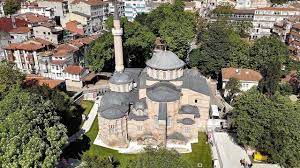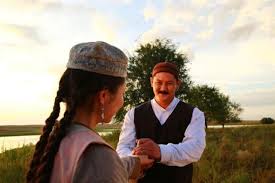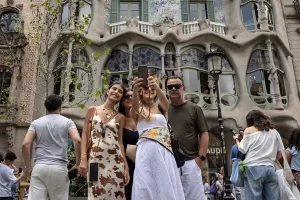Greece’s Mitsotakis to voice ‘discomfort’ over converted Chora Museum during Turkey visit

Athens: Greek Prime Minister Kyriakos Mitsotakis on May 8 criticized the recent conversion of the Chora Museum in Istanbul into a mosque during his monthly visit to President Katerina Sakellaropoulou.
The PM added he would voice his ‘discomfort’ to Turkish President Recep Tayyip Erdogan during his Ankara visit on May 13.
Sakellaropoulou shared impressions from her visit with Mitsotakis, and said that Chora’s conversion into a mosque “sent a negative message.”
“We are talking about a cultural heritage monument. If we want a good relationship, we should respect mutual values,” she added.

The Greek Foreign Ministry also said that the converted mosque’s May 6 opening was “an insult” to its status on the UNESCO World Heritage list, and Turkey “defied the international community” by going through with the conversion.
“Preserving the universal character of monuments and abiding by international standards to preserve their religious and cultural heritage is the obligation of all states,” read the ministry statement.
Mitsotakis’ Turkey visit is seen as the latest step in a diplomatic thaw between the two historical rivals. Erdogan visited Greece in December 2023, reinitiating warming relations after the two countries have long been at odds over issues including where their continental shelves start and end, energy resources, flights over the Aegean Sea, and policy towards the ethnically divided island of Cyprus.
The Byzantine-era church in Istanbul’s historic Fatih district was converted into a museum in 1945 with a cabinet decision. The ruling Justice and Development Party (AKP) government “reconverted” the structure’s status in 2020, along with the Hagia Sophia.
After years of preparation and modification efforts, the reconverted half-mosque-half-museum opened to the public on May 6, with a ceremony where Erdogan joined via teleconference.
The medieval Church of the Holy Saviour in Chora, built near the ancient city walls of Constantinople, contains 14th-century Byzantine mosaics and frescoes showing scenes from biblical stories.
The frescoes in the building were concealed with curtains in preparation for the conversion, causing ire due to the historical and cultural value of the icons.
The World Heritage Committee of UNESCO allowed Turkey until February 2022 to present an updated report on the modifications made to Chora and Hagia Sophia, expressing “deep concern” over the effects of the transformations.
The Turkish Foreign Ministry refused to present the report, claiming the request was penned with “biased and political motivations.”
Erdogan and the ruling AKP used the “reconversion” of these historical structures as campaign materials for the general elections of 2023, framing the move as a long-awaited victory.





